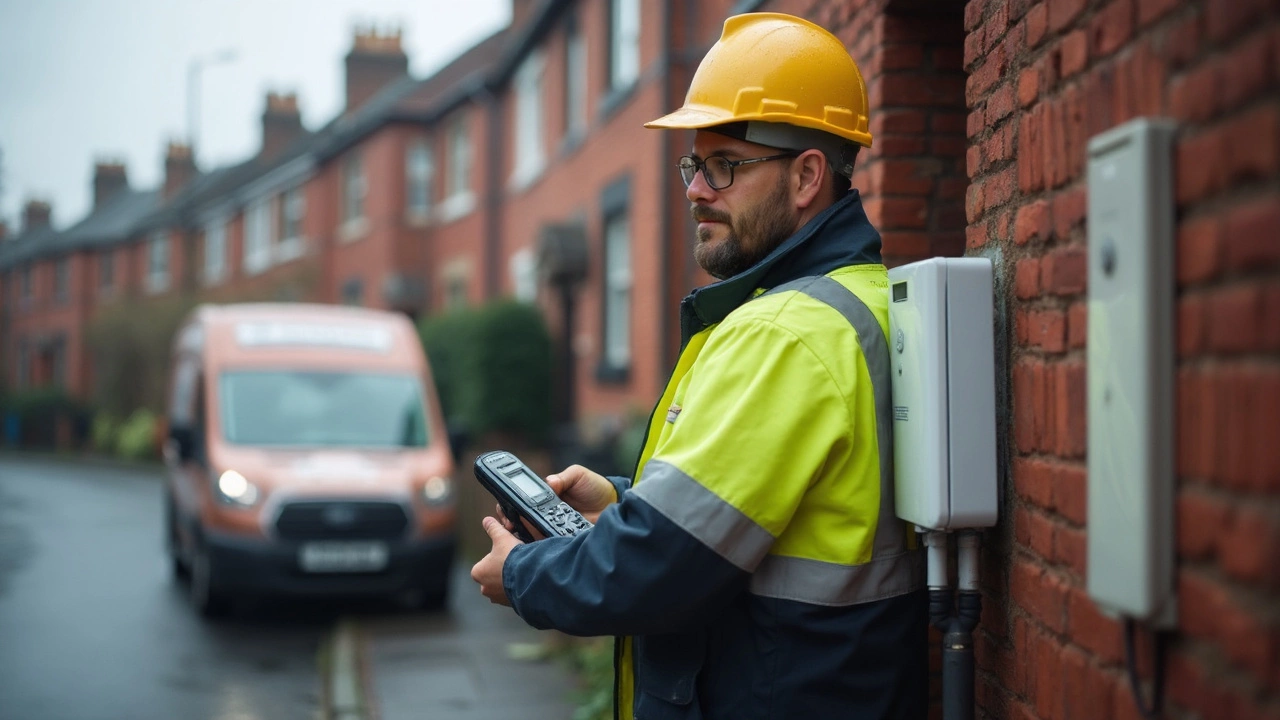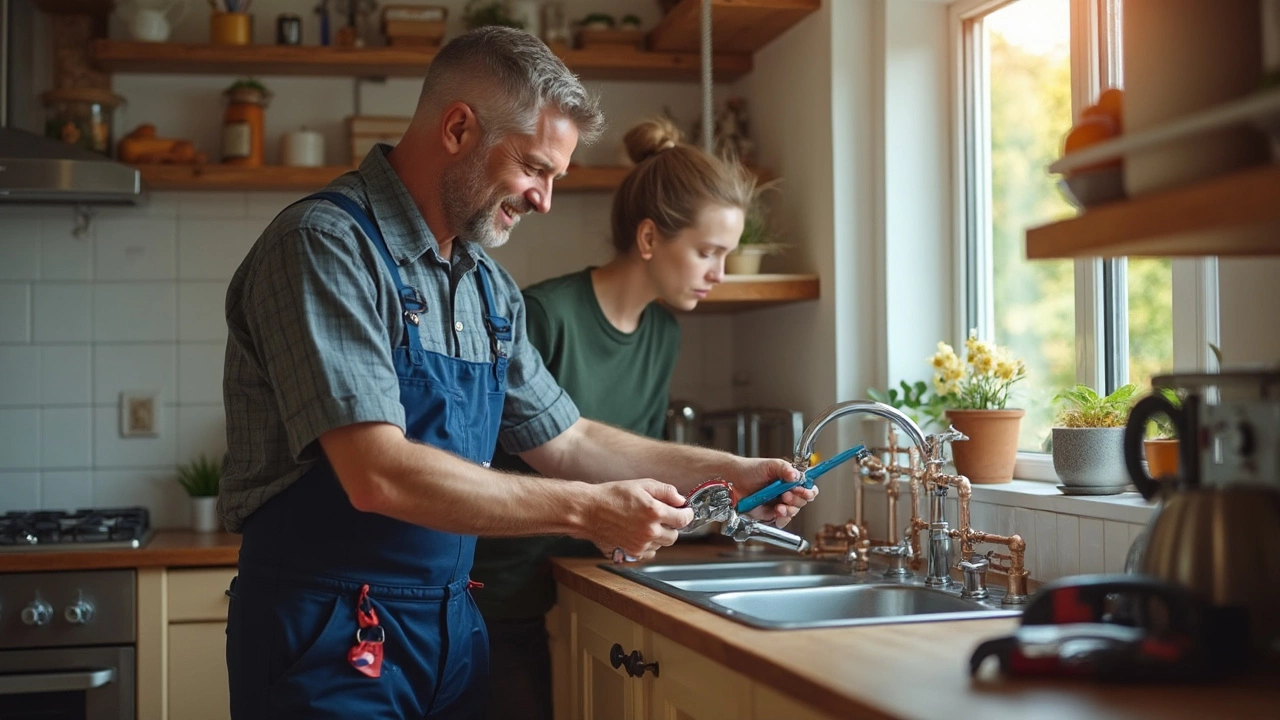Ever had your boiler conk out during the coldest week of the year? You’re sitting in your living room, shivering and eyeing that old heater with suspicion. Now you’re wondering: do plumbers handle boilers, or should you call someone else? This question pops up a lot, especially here in Wellington, where heat pumps and boilers can’t just be taken for granted. Let’s untangle the mystery and sort the facts from the urban myths before you make another panicked phone call.
What Do Plumbers Really Do?
Most people picture a plumber with a wrench fixing a leaky tap or wrestling with a backed-up toilet. But here’s the kicker—plumbers cover a lot more ground than that. In New Zealand, licensed plumbers are trained to install, maintain, and repair everything that gets water in and out of your house: pipes, sinks, taps, toilets, dishwashers, and yes, even hot water cylinders. Many folks are surprised to hear that plumbers can also help with hot water systems, not just the pipes leading to your bathroom. In fact, in 2024 the Plumbers, Gasfitters and Drainlayers Board’s regulations explained that registered plumbers with the right endorsements can legally install and service most domestic hot water systems, including gas hot water boilers. But—and it’s a pretty big ‘but’—traditional room boilers or central heating boilers often call for extra certification.
Let’s break it down. Standard water heaters (including hot water cylinders) are well within the plumber’s toolkit. But if we’re talking about boilers that burn gas for central heating, some parts of the job become the responsibility of a ‘gasfitter’—that’s someone who has specialised in working safely with gas lines, burners, and vents. Plenty of plumbers do both, if they hold the “plumbing and gasfitting” ticket. If they don’t, you could end up with a half-fixed heater and a plumber shaking his head, telling you he’s not allowed to touch the burners.
Here’s a simple way to check: ask your plumber, “Are you certified for gasfitting or boilers?” If they say yes, you’re golden. If not, you may need a separate visit from a certified gasfitter or a specialist boiler engineer. For electric boilers, most plumbers are in their comfort zone, but always double-check. Modern plumbing training in NZ now includes some boiler know-how, especially as home heating systems have become more complex. If you’re not sure, the PGDB maintains an online register so you can look up any local tradesperson’s credentials before you hire them.
Boiler Types and Who Fixes What
Boilers can mean different things depending on where you grew up. In New Zealand, most houses rely on either electric or gas hot water systems—tank storage cylinders (for hot water taps) or instant water heaters (califonts). Traditional European-style ‘boilers’ that heat water for central heating radiators are less common, but they’re popping up in more homes, especially new, energy-efficient builds. Knowing what kind you’ve got is half the battle.
Let’s spell it out:
- Hot water cylinders (electric or gas): Most plumbers can service, install, and repair these. Even for gas-powered versions, if the plumber is also licensed as a gasfitter, you’re set.
- Combi boilers (common in Europe/UK): These heat water for both the taps and for central heating. If you’ve imported one or have a new build, you’ll need a plumber who knows these systems inside-out and holds a gasfitter license.
- Instant gas water heaters (califonts): Like Rinnai and Rheem units. Plumbers with gasfitting skills handle installation and repairs. The same goes for regular servicing.
- Central heating boilers: If your system runs radiators or underfloor heating via a central boiler, you’ll almost always need a certified boiler engineer plus a gasfitter, especially if it burns gas, wood pellets, or diesel. Plumbing is usually involved for water loop repairs, pipe installation, and so on.
Here’s an example: Say your radiator in the lounge is cold, but the pipes nearby are hot. A plumber can diagnose circulation issues, check for blockages, bleed air, and repair leaks. But if the central boiler isn’t firing up at all, the job might require a gasfitter or a specialist technician—someone who can fix ignition, burners, thermostats, and more.
By the way, boilers have specific manufacturers and brands in NZ. Rinnai, Vaillant, Baxi, and Bosch heaters are common, and their manuals almost always say: use a registered gasfitter or approved local engineer for repairs. Ignore that advice, and you risk voiding warranties and having non-compliant (or dangerous) heating.

Regulations, Safety, and Legal Stuff
It’s easy to forget that dealing with boilers isn’t just about getting the hot water flowing—it’s about safety too. In New Zealand, all gas work, including boiler repairs and installation, falls under the Gas Act and strict Building Code standards. Only registered gasfitters can legally connect, repair, or modify any gas appliance or flue. Many high-profile fires and explosions have been traced to unqualified tinkerers or cut-rate “handymen” skipping safety checks.
Here’s the punchline: if a plumber works outside their official license, you—the homeowner—can get stung by insurance companies, the council, or even (in the rare worst-case scenario) the courts. Let’s make it simple: always check for the PGDB-issued ID card. You can view up-to-date stats on boiler incidents from WorkSafe New Zealand, which show that gas boiler mishaps remain rare, but almost every single one in the past five years involved illegal or unqualified installation or repair.
| Year | Reported Boiler Incidents (NZ) | Unqualified Repairs Involved |
|---|---|---|
| 2021 | 7 | 5 |
| 2022 | 9 | 6 |
| 2023 | 8 | 6 |
| 2024 | 6 | 5 |
So when you pick up the phone, don’t just ask, “Are you a plumber?” but also “Are you a licensed gasfitter?” A lot of plumbing companies in Wellington, Auckland, and Christchurch now cross-train their teams in both so homeowners don’t have to hop between tradies, but it always pays to check. Remember, the fines for illegal gas work can run up to $10,000!
Here’s another tip—if you’ve got an older house and you're thinking of switching to a high-efficiency condensing boiler, this is never a DIY job. The rules now require a consent for new gas appliances, and the installation must be signed off by a qualified professional. So skip the temptation to save a few bucks by letting your “mate who’s good with tools” do the job. For electric boilers, you’ll often need an electrician as well for any fixed wiring. The crossover between plumbing, gasfitting, and electrical can get messy, which is why reputable companies often send out a team with all the right skills on board.
Boiler Maintenance Tips and What to Ask Your Tradie
Let’s say your boiler’s working fine right now, but you want to keep it that way. Regular check-ups are the unsung heroes here. Even the best boilers get grumpy if you don’t show them some love. In New Zealand, the standard advice is to get your gas boiler serviced at least once a year—a bit like taking your car in for its warrant of fitness. For electric boilers, annual checks are smart too, especially for older systems or if the power bill suddenly spikes.
What does a service visit usually include? For a gas boiler, the technician will check key safety features—flue integrity, burner operation, carbon monoxide emissions, and system pressure. They’ll clean out dust, debris, and any buildup inside the combustion chamber, look for signs of rust and leaks, and test the safety shutoffs. For combo systems, they may also bleed radiators, top up antifreeze, and check thermostats. An electric boiler check-up covers thermostat calibration, heating element testing, insulation on wiring, and ensuring that circuit breakers aren’t at risk of tripping.
When booking a plumber or boiler pro, try asking a few smart questions:
- “Are you certified for both plumbing and gasfitting work?”
- “How much experience do you have with my specific brand/model of boiler?”
- “What’s included in your standard service, and do you provide compliance documentation?”
- “Do you offer emergency callouts outside business hours?”
Another nugget: some newer boilers are Wi-Fi enabled, so you can get fault alerts right to your phone, and some even email service updates to your plumber. Not sci-fi—this is on the market now. If you’re replacing or upgrading, ask about future-proofing your setup so problems are easy to spot and you can book a tradie faster when anything crops up.
And don’t wait for trouble. If you hear weird banging from the boiler cupboard or you notice yellow flames (should always be blue for gas), book a check ASAP. Stats from Wellington indicate that 70% of boiler failures in winter could’ve been caught earlier with regular servicing and a little TLC, according to the 2023 Consumer NZ heating survey.
Here’s a quick cheat sheet of the signs your boiler or hot water system needs attention:
- No hot water, or fluctuating hot water
- Strange noises—banging, whistling, or hissing
- Pilot light goes out or burns yellow
- Unusual smells (could signal a gas leak, which needs immediate action!)
- Increasing energy bills without any obvious reason
Bottom line—if you keep your boiler happy and serviced by the right pro, you’ll spend a lot less time shivering… and less money fixing big problems down the road. So do plumbers handle boilers? The short answer: yes, with conditions. Always check credentials, get regular check-ups, and don’t take shortcuts, unless you fancy washing with cold water on a freezing Wellington morning.

